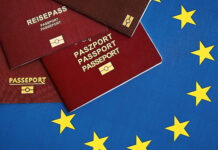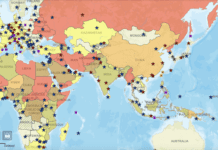
Now is an exciting (and confusing) time to plan meetings globally.
Several issues and trends are impacting the international meetings market. Those include the increase in demand for meetings, limited availability, increase in hotel average daily rates affecting planner’s budgets that are not increasing at the same pace, economics of the United Kingdom leaving the European Union and increased security required to secure safety of attendees.
Due to these challenges, it now takes longer to plan and execute an international meeting, with significantly higher costs and currency fluctuations associated with it. There are language barriers, custom differences, time zone and holidays to contend with, travel documentation to obtain, security to arrange, and they require more on-site and destination support. But don’t fear, here’s some insight into how to dominate the international meetings market:
Diversity/Language
Although English is often the preferred language of business internationally, it is good to learn a few key phrases of the country you are meeting in, or at least have Google Translator accessible on your phone. Every nation, region or country also has their own set of unique customs and traditions to be respected, so make sure you learn those and then distribute what you learned to your attendees.
International Room Rates
Typically, the room rate is an inclusive per person Daily Delegate Rate (DDR) based on minimum number of people for the assigned meeting room. DDR’s often include full/half day conference packages for the meeting room, minimum AV, a coffee break, lunch, and a service charge and applicable taxes.
Value Added Tax (VAT)
There is an indirect tax on the domestic consumption of goods and services, except those that are zero-rated (such as food and essential drugs) or are otherwise exempt (such as exports). It is levied at each stage in the chain of production and distribution of raw materials to the final sale based on the value (price) added at each stage. VAT ranges from 15 percent to 25 percent in each country. You must collect your VAT within three months of your visit, and typically your hotel can assist you in obtaining your VAT refund.
Customs Broker
To clear goods at the border, it is best to hire a customs broker who knows the rules and regulations of the country you are meeting in to get the job done safely, quickly and economically. They assist with documentation (both offline and online), country-specific rules, calculation of duties and related taxes, if any, and payments to the CBP. They assure your goods clear customs.
Contract Tips
Hotels value your meetings internationally the same way they do domestically, and this influences the pricing and availability. Understand the value your meeting brings to the hotel, and be able to leverage this with providing strong history of hotel room pick-up, food and beverage held on site, dates/season/pattern, potential incremental revenue, and transient and leisure demand you are competing with for your group.
When negotiating the contract, assure risk reduction and cost containment measures as well as enhance added meeting value and measurable cost savings. Make mutual obligations and responsibilities clear and have an easy path and process for dispute resolution. Having open and honest communications and negotiations so the contract is fair and balanced to both parties is the goal.
Other Things to Consider When Booking Internationally
- Currency exchange can fluctuate.
- Electrical varies per country so carry converters.
- Phone use varies, so rent a cellphone in the local destination as a backup.
- Heating and air is not standard in hotel guest rooms and meeting rooms.
- Terminology varies country to country so define and be specific.
- Sleeping rooms tend to be much smaller.
- Measurement is often in metrics, not square feet, so verify your assigned meeting space.










